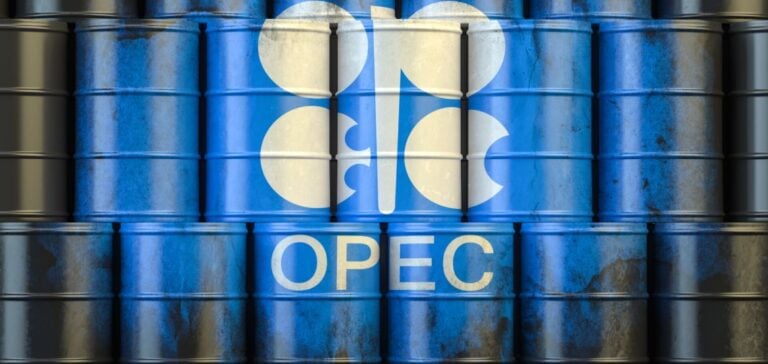Oil markets remain relatively stagnant as investors await the OPEC+ meeting, scheduled for December 1, to receive guidance on future production. At 11:17 am Singapore time, the January Brent contract was trading at $72.70 per barrel, down 0.18%, while the January NYMEX light crude contract dropped to $68.58 per barrel, down 0.2%.
The OPEC+ meeting has garnered particular attention amidst ongoing imbalances between supply and demand. Initially planned as an in-person event in Vienna, the meeting will now be held online, reflecting internal tensions, including some members failing to meet quotas. Despite challenges linked to declining Chinese consumption, growing demand in advanced economies partially offsets this decline, creating contrasting dynamics in global markets.
US oil stocks decline
In the United States, commercial crude oil stocks decreased by 1.84 million barrels, reaching 428.45 million barrels for the week ending November 22, according to the US Energy Information Administration (EIA). However, this draw was lower than the American Petroleum Institute’s (API) forecast, which predicted a reduction of 5.94 million barrels.
Gasoline stocks on the US East Coast hit a two-year low at 50.64 million barrels as demand surged ahead of the extended Thanksgiving weekend. The American Automobile Association (AAA) estimates that 71.7 million people will travel by car, marking a historic record.
Surprise in South Korea
In Asia, the Bank of Korea (BOK) surprised markets by lowering its key interest rate by 25 basis points to 3%, marking a second consecutive cut. This decision, unprecedented since the 2008-2009 global financial crisis, reflects an effort to support a slowing economy.
The rate cut comes as South Korean inflation has dropped below 2%, fueling debates over the necessity of preventive measures against global economic headwinds. According to Deepali Bhargava and Min Joo Kang, economists at ING, this strategy aims to mitigate the impact of weakening domestic demand.
US outlook
In the United States, the Personal Consumption Expenditures (PCE) index, the Federal Reserve’s preferred measure of inflation, increased by 2.3% in October compared to the previous year. The core PCE, which excludes volatile elements like energy and food, stood at 2.8%, in line with expectations.
These figures are expected to influence discussions during the Federal Open Market Committee’s (FOMC) final meeting of the year, scheduled for December 17-18. Currently, markets estimate a 66.5% probability of a 25 basis point rate cut, according to CME’s FedWatch tool.
Dubai crude
Meanwhile, Dubai crude swaps showed a slight decline. The January swap stood at $71.29 per barrel at 10 am Singapore time, down 0.39% from the previous day.





















